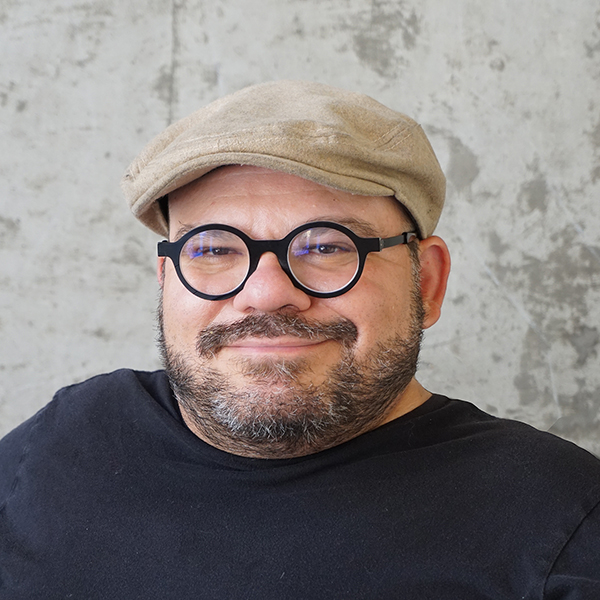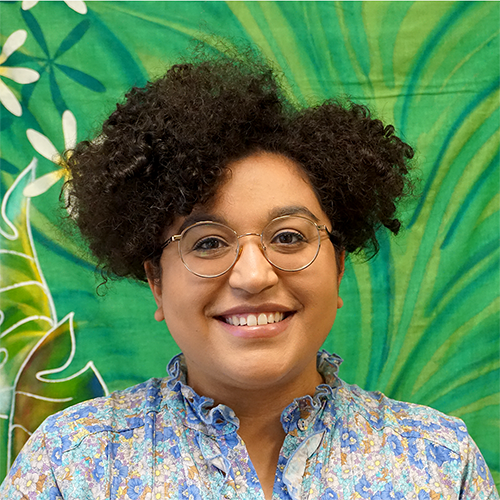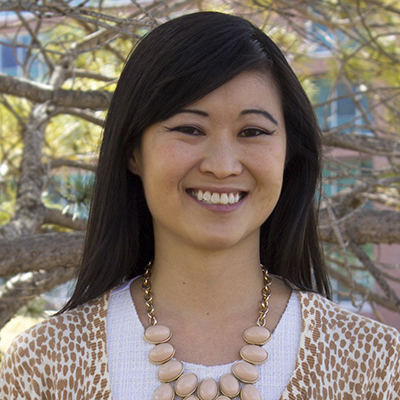People
Director
Joseph A. Stramondo
Ph.D. (Philosophy, Michigan State University), M.A. (Public Policy Studies, Trinity College, Hartford CT)
Email: [email protected]
 Dr. Stramondo (he/him/his) is an Associate Professor of Philosophy and Humanities, as well as the Interim Chair of Classics and Humanities at San Diego State University. During the 22-23 Academic Year, he was the Hubert Mader Visiting Professor in Bioethics at the Albert Gnaegi Center for Healthcare Ethics at Saint Louis University. His research focuses on the intersection of biomedical ethics and philosophy of disability. Namely, he is concerned with how bioethics can be reframed by centering the lived experiences of disability as a crucial source of moral knowledge that should guide clinical practice, biomedical research, and health policy. He has published scholarship on topics ranging from informed consent procedures to reproductive ethics to pandemic triage protocols to assistive neurotechnology. His work appears in venues such as The Hastings Center Report, Ethical Theory and Moral Practice, Ergo, Clinical Ethics, Utilitas, Social Theory and Practice, the Kennedy Institute for Ethics Journal, Theoretical Medicine and Bioethics, the International Journal of Feminist Approaches to Bioethics, Social Philosophy Today, and several scholarly book collections. He is devoting most of his present research effort to developing a book manuscript that is tentatively titled The Ethics of Choosing Disability, which is under contract with Oxford University Press.
Dr. Stramondo (he/him/his) is an Associate Professor of Philosophy and Humanities, as well as the Interim Chair of Classics and Humanities at San Diego State University. During the 22-23 Academic Year, he was the Hubert Mader Visiting Professor in Bioethics at the Albert Gnaegi Center for Healthcare Ethics at Saint Louis University. His research focuses on the intersection of biomedical ethics and philosophy of disability. Namely, he is concerned with how bioethics can be reframed by centering the lived experiences of disability as a crucial source of moral knowledge that should guide clinical practice, biomedical research, and health policy. He has published scholarship on topics ranging from informed consent procedures to reproductive ethics to pandemic triage protocols to assistive neurotechnology. His work appears in venues such as The Hastings Center Report, Ethical Theory and Moral Practice, Ergo, Clinical Ethics, Utilitas, Social Theory and Practice, the Kennedy Institute for Ethics Journal, Theoretical Medicine and Bioethics, the International Journal of Feminist Approaches to Bioethics, Social Philosophy Today, and several scholarly book collections. He is devoting most of his present research effort to developing a book manuscript that is tentatively titled The Ethics of Choosing Disability, which is under contract with Oxford University Press.
Associate Director
Esme G. Murdock
Ph.D. (Philosophy, Michigan State University)
Email: [email protected]
 Dr. Murdock (she/her/hers) is an Associate Professor of American Indian Studies at San Diego State University. Her research interests include environmental justice, Indigenous and Afro-descended environmental ethics, settler colonial theory, and decolonization as land/resource rematriation. Murdock comes to this work as a descendant of enslaved Africans and settlers in North America. Her current work explores the devastating impacts of colonization and slavery on both Indigenous and Afro-descended peoples and environments on Turtle Island (North America). She anchors her understanding of settler colonialism, in particular, in the experiences and theorization of Native and Black communities especially toward securing decolonial futures. She often writes back to mainstream environmental discourse that attempts to “read out” colonization as the context of environmental degradation and destruction, particularly in the settler colonies of the United States and Canada. Her work centers conceptions of land and relating to land found within both Indigenous and African American/Afro-descended environmental philosophies. She has work published in Environmental Values, Global Ethics, Hypatia, Agricultural and Environmental Ethics, and World Philosophies.
Dr. Murdock (she/her/hers) is an Associate Professor of American Indian Studies at San Diego State University. Her research interests include environmental justice, Indigenous and Afro-descended environmental ethics, settler colonial theory, and decolonization as land/resource rematriation. Murdock comes to this work as a descendant of enslaved Africans and settlers in North America. Her current work explores the devastating impacts of colonization and slavery on both Indigenous and Afro-descended peoples and environments on Turtle Island (North America). She anchors her understanding of settler colonialism, in particular, in the experiences and theorization of Native and Black communities especially toward securing decolonial futures. She often writes back to mainstream environmental discourse that attempts to “read out” colonization as the context of environmental degradation and destruction, particularly in the settler colonies of the United States and Canada. Her work centers conceptions of land and relating to land found within both Indigenous and African American/Afro-descended environmental philosophies. She has work published in Environmental Values, Global Ethics, Hypatia, Agricultural and Environmental Ethics, and World Philosophies.
Core Faculty
Raechel Dumas
Ph.D. (Japanese, University of Colorado at Boulder)
Email: [email protected]
 Dr. Dumas (she/her/hers) is an Associate Professor of History at SDSU. She is a specialist in modern Japan, with emphasis in the histories of literature and visual culture. Her research focuses on contemporary Japanese popular culture, and especially the gender and sexual politics of dark genres including horror, crime fiction, and science fiction. Her other interests include the gender politics of global crime and horror fiction; trauma narratives; and feminist, psychoanaytic, and affect theories. She is the author of The Monstrous-Feminine in Contemporary Japanese Popular Culture (Palgrave Macmillan, 2018). Her work has appeared or is forthcoming in the journals Revenant, English Language Notes, Journal of Popular Culture, Extrapolation, Science Fiction Studies, Supernatural Studies, Electronic Journal of Contemporary Japanese Studies, Japanese Journal of Religious Studies, Quarterly Review of Film and Video, and South Atlantic Review.
Dr. Dumas (she/her/hers) is an Associate Professor of History at SDSU. She is a specialist in modern Japan, with emphasis in the histories of literature and visual culture. Her research focuses on contemporary Japanese popular culture, and especially the gender and sexual politics of dark genres including horror, crime fiction, and science fiction. Her other interests include the gender politics of global crime and horror fiction; trauma narratives; and feminist, psychoanaytic, and affect theories. She is the author of The Monstrous-Feminine in Contemporary Japanese Popular Culture (Palgrave Macmillan, 2018). Her work has appeared or is forthcoming in the journals Revenant, English Language Notes, Journal of Popular Culture, Extrapolation, Science Fiction Studies, Supernatural Studies, Electronic Journal of Contemporary Japanese Studies, Japanese Journal of Religious Studies, Quarterly Review of Film and Video, and South Atlantic Review.
Diana Leong
Ph.D. (Culture and Theory with emphases in Critical Theory and Science and Technology Studies, University of California, Irvine)
Email: [email protected]
 Dr. Leong (she/her/hers) is an Assistant Professor of English and Comparative Literature. Her research and teaching focuses on environmental justice, black literature, science and speculative fiction, and the environmental humanities (e.g., posthumanism, science and technology studies, animal studies, new materialisms). She is currently completing a monograph, Against Wind and Tide: Toward a Slave Ship Ecology, that theorizes the slave ship as a site for the material and imaginative convergence of environmental justice and abolitionism. Dr. Leong received her Ph.D. in Culture and Theory with emphases in Critical Theory and Science and Technology Studies from the University of California, Irvine. Her work has appeared in publications like ISLE, Catalyst: Feminism, Theory, Technoscience, Configurations, The Digital Review, and The Palgrave Handbook of Animals and Literature.
Dr. Leong (she/her/hers) is an Assistant Professor of English and Comparative Literature. Her research and teaching focuses on environmental justice, black literature, science and speculative fiction, and the environmental humanities (e.g., posthumanism, science and technology studies, animal studies, new materialisms). She is currently completing a monograph, Against Wind and Tide: Toward a Slave Ship Ecology, that theorizes the slave ship as a site for the material and imaginative convergence of environmental justice and abolitionism. Dr. Leong received her Ph.D. in Culture and Theory with emphases in Critical Theory and Science and Technology Studies from the University of California, Irvine. Her work has appeared in publications like ISLE, Catalyst: Feminism, Theory, Technoscience, Configurations, The Digital Review, and The Palgrave Handbook of Animals and Literature.
Charmane M. Perry
Ph.D. (Africology, University of Wisconsin Milwaukee.)
Email: [email protected]
 Dr. Perry is an Assistant Professor in the Department of Africana Studies. As an Africologist, Perry is trained in the discipline of Black Studies receiving her B.A. in African American Studies from Temple University, a M.A. in Pan African Studies from Syracuse University, and a Ph.D. in Africology from the University of Wisconsin Milwaukee. Her research interests concern how race and racism play out in different geographical contexts for Black people, from the Caribbean to the United States. As a daughter of the Haitian diaspora, her current research examines the experiences of stigma, identity, and citizenship among second-generation Haitians in The Bahamas. Her publications have appeared in Latin American and Caribbean Ethnic Studies, Identities: Global Studies in Culture and Power, Ethnicities, and International Journal of Bahamian Studies. As a Philadelphia native, her next research project will explore Black Philadelphia and their efforts to desegregate Girard College, a private boarding school created for white orphaned boys in 1848, located in the heart of Black North Philadelphia.
Dr. Perry is an Assistant Professor in the Department of Africana Studies. As an Africologist, Perry is trained in the discipline of Black Studies receiving her B.A. in African American Studies from Temple University, a M.A. in Pan African Studies from Syracuse University, and a Ph.D. in Africology from the University of Wisconsin Milwaukee. Her research interests concern how race and racism play out in different geographical contexts for Black people, from the Caribbean to the United States. As a daughter of the Haitian diaspora, her current research examines the experiences of stigma, identity, and citizenship among second-generation Haitians in The Bahamas. Her publications have appeared in Latin American and Caribbean Ethnic Studies, Identities: Global Studies in Culture and Power, Ethnicities, and International Journal of Bahamian Studies. As a Philadelphia native, her next research project will explore Black Philadelphia and their efforts to desegregate Girard College, a private boarding school created for white orphaned boys in 1848, located in the heart of Black North Philadelphia.
